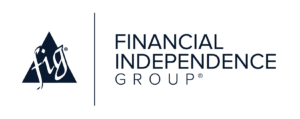Gearing up for your next conference? Unlock the secrets to dominating conferences and turbocharge your networking prowess with our comprehensive guide.
Picture this: You’re standing in a vast conference hall, surrounded by fellow financial professionals bustling with energy and ambition. As you glance over the agenda, the air is charged with anticipation, your mind buzzing with possibilities. You’ve invested time and resources to be here, and you’re determined to make the most out of every moment.
Welcome to the world of financial conferences – where networking isn’t just a buzzword but a strategic imperative, and every session holds the potential to unlock new insights and opportunities. These gatherings offer a unique chance to connect with industry peers, stay abreast of trends, and elevate your professional game.
But let’s face it – navigating a conference isn’t always a walk in the park. Amidst the sea of faces and flurry of activities, it’s easy to feel overwhelmed or unsure where to focus your efforts. That’s where this guide comes in. We’re here to help you decode the art of maximizing your conference experience, providing practical strategies and insider tips to ensure you leave each event feeling empowered and enriched.
So, if you’re ready to turn those conference corridors into avenues of opportunity, join us as we explore the essential tactics for success at financial conferences. From setting strategic goals to mastering the art of networking, we’ve got you covered.
Preparing for the Financial Conference
#1. Research the Agenda and Speaker
Before stepping into the conference venue, arm yourself with knowledge. Take the time to research the conference agenda and speakers thoroughly. Look beyond just the session titles – delve into the topics being covered, the expertise of the speakers, and any additional events or workshops scheduled.
By familiarizing yourself with the agenda, you can strategically plan which sessions to attend based on your professional interests and objectives. Highlight key sessions that align with your career goals or areas of expertise, but remain open to exploring new topics that might broaden your perspective.
Furthermore, research the speakers slated to present at the conference. Familiarize yourself with their backgrounds, accomplishments, and areas of expertise. This will help you prioritize which sessions to attend and provide valuable context for engaging with speakers during and after their presentations.
#2. Set Specific Goals
Attending a conference without clear goals is like setting sail without a compass – you may end up adrift in a sea of opportunities without a clear direction. Before you arrive, take some time to define specific goals you want to achieve during the conference.
These goals could range from broad objectives, such as expanding your professional network or gaining industry insights, to more specific targets, such as connecting with potential clients or learning about emerging trends in a particular sector. Whatever your goals are, ensure they’re realistic, measurable, and aligned with your overall career objectives.
Once you’ve established your goals, create a plan for achieving them. Identify the key sessions, workshops, and networking events to help you move closer to your goals and prioritize your time accordingly. Having a clear roadmap will keep you focused and motivated and maximize the value you derive from the conference experience.
#3. Prepare Your Elevator Pitch
In the fast-paced world of conferences, opportunities to make meaningful connections can arise anytime – whether you’re waiting in line for coffee or riding the elevator with a peer. That’s why it’s essential to have a polished elevator pitch ready to go at a moment’s notice.
An elevator pitch is a brief, compelling introduction that succinctly communicates who you are, what you do, and why you’re worth knowing – all within a short elevator ride. Crafting an effective elevator pitch requires clarity, conciseness, and a dash of charisma.
Start by distilling your professional identity into a few key points – your expertise, unique value proposition, and what sets you apart from the crowd. Practice delivering your pitch until it flows effortlessly and naturally, adjusting it based on the context or audience.
Remember, your elevator pitch isn’t just a rote resume recitation – it’s a chance to spark curiosity, pique interest, and lay the foundation for meaningful conversations.
Related: It’s All About the Wow: Mastering the Art of Public Speaking
Financial Event Networking Strategies
Networking at conferences can be a game-changer for financial professionals, opening doors to new opportunities and valuable connections. Here’s how you can make the most of your networking experience:
#1. Initiating Conversations with Fellow Attendees
Engaging with fellow attendees is the cornerstone of successful networking. Approach conversations with confidence and authenticity, showcasing your genuine interest in connecting. Remember, networking is about building relationships, not just collecting business cards.
- Approaching with Confidence and Authenticity: Confidence is key when initiating conversations. Stand tall, make eye contact, and offer a firm handshake to convey professionalism and confidence. Authenticity is equally important – be genuine in your interactions and show a sincere interest in getting to know others.
- Asking Open-Ended Questions to Engage Others: Open-ended questions are powerful conversation starters, encouraging deeper engagement and facilitating meaningful dialogue. Instead of asking yes/no questions, pose inquiries that invite elaboration and discussion.
#2. Utilizing Social Events and Breaks for Networking
Don’t underestimate the networking potential of social events and breaks during conferences. These informal settings provide excellent opportunities to connect with fellow attendees in a relaxed atmosphere.
#3. Leveraging Technology for Networking Opportunities
- Choosing Sessions Aligned with Professional Goals: Select sessions that directly align with your professional goals and interests. By focusing on relevant topics, you can ensure that your time spent in sessions is both valuable and productive. If time allows, try soak in as much information as possible and prepare to gain knowledge you didn’t know you needed!
- Active Listening and Note-Taking Strategies: Stay engaged during sessions by practicing active listening and taking effective notes. Capture key points, ideas, and insights that resonate with you, allowing you to retain and apply information to your work later.
- Engaging in Discussions and Asking Questions During Sessions: Participate in discussions and don’t hesitate to ask questions during sessions. Engaging with speakers and fellow attendees fosters a collaborative learning environment and provides opportunities for deeper exploration of session topics.
Nurturing Connections: Post-Conference Follow-Up
After the conference, it’s essential to follow up with the contacts you’ve made to maintain and strengthen your professional network. Here’s a checklist to guide your post-conference follow-up:
- Send Personalized Follow-Up Emails: Craft individualized emails to each contact, referencing specific conversations or topics discussed during the conference. Aim to send these emails within a few days of the event.
- Connect on Professional Networking Platforms: Reach out to your new connections on platforms like LinkedIn. Personalize your connection requests by mentioning your interaction at the conference and expressing your interest in staying connected.
- Schedule Follow-Up Meetings or Calls: Take the initiative to schedule follow-up meetings or calls with your contacts. Use this time to explore shared interests further, discuss potential collaborations, or simply catch up. Aim to schedule these follow-ups within a couple of weeks after the conference.
By following this checklist, you can ensure that you’re effectively nurturing your connections and maximizing the value of your conference experience in the long run.
Sealing the Deal
Conferences are invaluable opportunities for financial professionals to expand their horizons, forge new connections, and stay at the forefront of industry trends. By implementing the strategies outlined in this guide, you can navigate conferences with confidence and purpose, maximizing every interaction and session to advance your career.
Remember, success at conferences isn’t just about attending – it’s about actively engaging, setting goals, and nurturing connections even after the event has ended. So, as you embark on your next conference journey, armed with newfound knowledge and insight, seize every opportunity and let the conference floor become your platform for growth and success in the dynamic world of financial services.


